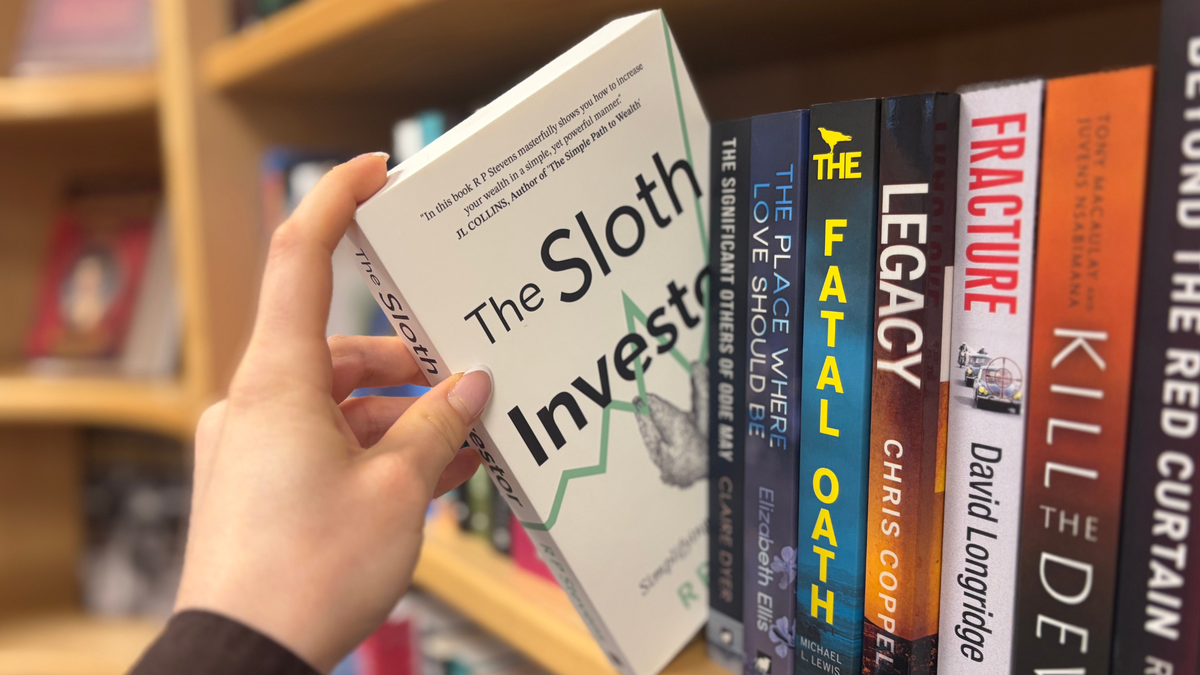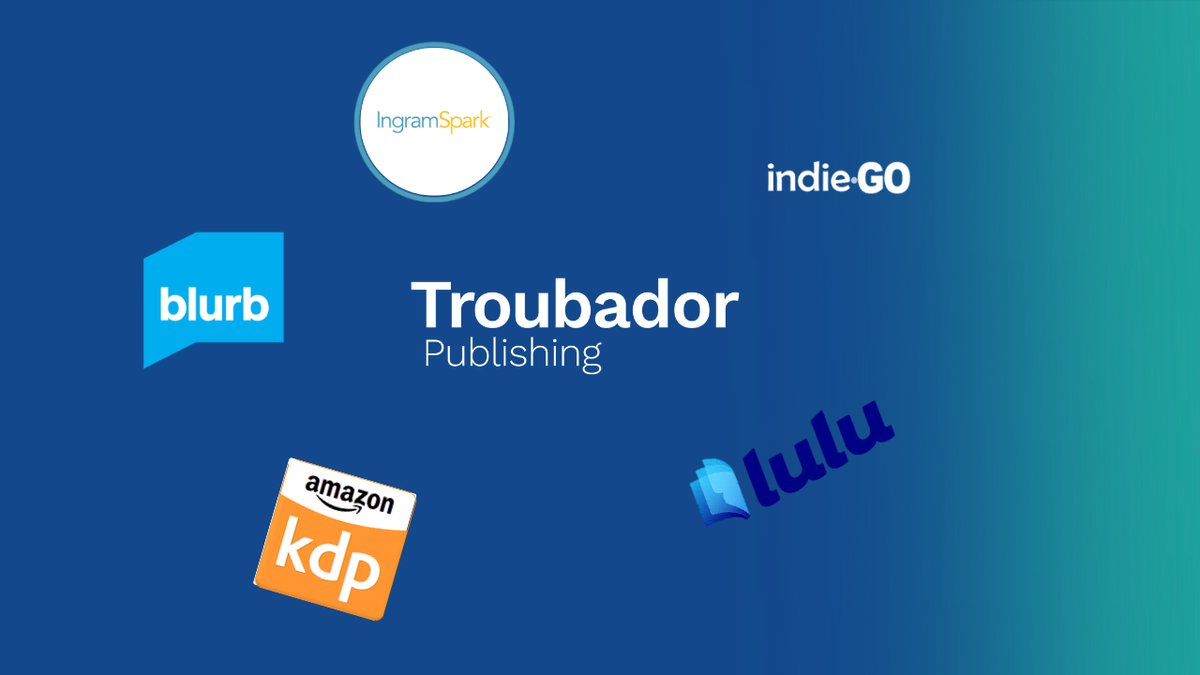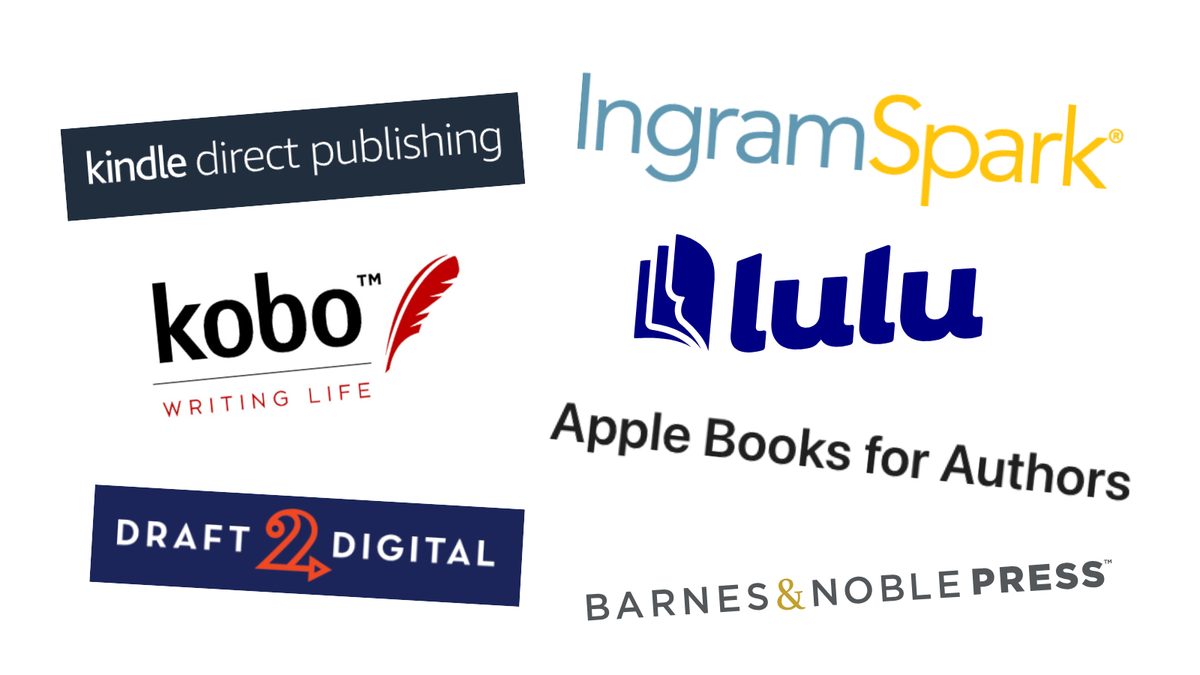
28th August, 2024
12 min read
How Publishing a Business Book Can Help Your Business Grow
Written by:
Alex Thompson
If you are reading this blog article, you are likely a business owner. If so, I’d like to start with a quick question: do you want your business to grow? I would imagine that 99%, if not 100%, of you would say an emphatic “YES!” to that question. As a business owner myself, I know I would.
It is also likely that, if you are reading this article, you have either considered or perhaps have even finished writing a business book of your own. Now while I am no author myself, I have seen many examples of where business owners have used the publication of their business book to great effect to grow their business. Check out the case studies section at the end of the article for some examples.
In short, publishing a business book can be a really powerful tool for growth. In this article, I run through why that is, the specifics of how growth can be stimulated by your publication and I’ll give you a headstart on where to begin.
Establishing Authority
Writing a business book undoubtedly gives its author credibility and helps them stand out from a crowded market filled with thought leaders. If you think about it in its simplest form, would someone not confident or experienced in their field commit to writing thousands of words about a topic? No, it is far more likely that an expert with vast experience and knowledge to share would be confident enough to commit their thoughts to paper.
Business book readers understand that and while there will always be elements of your book that they may differ in opinion from, have contrasting experiences to or perhaps even downright disagree with you, on the whole, they will trust your expertise and, by extension, your business. If they don’t trust you to begin with, they certainly will by the time they have finished reading your book.
Trust is a direct derivative of authority (the more authority you have on a topic, the more trust you’ll gain from it) which can immediately be advertised back to your customer base. Through this, the writing of a book enhances trust among clients and stakeholders, leading to stronger relationships and, ultimately, growth.
Expanding Your Reach
Before I was a business owner I was a marketer by trade. As a director for marketing agencies, I worked with our clients on how they could increase their reach in the market and gain more visibility compared to their competitors. There are so many channels sales and marketing that all your competitors are working (you are all doing Google and paid social ads, writing content and attending events for example) but very few business owners are exploiting the channel of sharing their knowledge with their audience by writing a book.
Writing a business book can be a unique marketing asset, attracting new clients and opportunities and spreading your authority far and wide to the market. As well as promoting it to your existing network and audience, if you're a business owner that has international or even global ambitions for the growth of your business, you can use your book to gain access to that market through a different channel and lead with your knowledge sharing rather than your proposition.
Boosting Brand Awareness and Authenticity
Having a recognisable and trustworthy brand is essential for success. Publishing a book gives you a unique platform to showcase your expertise, ideas and values, amplifying your brand’s presence beyond traditional marketing methods. Unlike a blog post, ad or social media content, a book has a longer shelf life and carries more weight in terms of authority and perception. It’s a tangible, credible asset that speaks volumes about your business and can make your brand more memorable.
By publishing a book, you introduce your brand to new audiences that you might not have reached otherwise. When your book is listed on platforms like Amazon, featured in bookstores, or mentioned in media coverage, it acts as a continuous marketing tool that extends your reach far beyond your current network. Whether your book is purchased, shared or even discussed, your brand benefits from this new exposure.
A published book can also serve as a physical representation of your brand. Having a book to hand out or sell at industry events, conferences or to potential clients gives you a unique advantage over competitors who only rely on traditional business cards or brochures. It allows you to leave a lasting impression, making your brand more recognisable and credible.
Tell Your Business’s Story
One of the most powerful ways a business book can elevate your brand is through storytelling. Every business has a unique journey, mission and set of values, and a book offers the perfect medium to convey this to your audience. Storytelling humanises your brand, making it more relatable and engaging to your target market. As the business owner, it can also tell your personal story, which is something that other business owners are constantly interested in knowing more about.
Through your book, you can share not just what your business does, but why you do it. You can take your readers behind the scenes and show them the vision, the passion and the challenges that define your business or the approach you take in your market. When readers connect with your story on a deeper, emotional level, they are more likely to see your business as more than just a product or service provider – they’ll see it as a brand with purpose and meaning. This connection fosters loyalty and can turn readers into advocates for your business.
Additionally, storytelling through your book can help differentiate your brand in a crowded market. It allows you to share your unique perspective, industry insights and lessons learned, which positions your brand as a thought leader. By embedding your brand’s story within the pages of your book, you are creating a narrative that resonates with your target audience, reflecting their values, goals and needs.
Ultimately, when your brand’s story is told well, it becomes a vehicle for building trust, establishing credibility and creating a lasting relationship with your audience. Readers who resonate with your story are more likely to trust your business, recommend it to others and choose you over competitors who lack that personal connection.
Generating New Revenue Streams
With every new product, there is the potential for a new revenue stream to open up. The same is true of a book. While business owners may publish a book with other objectives outside of revenue generation in mind, it’s still the core objective more often than not. As well as direct revenue generated from book sales, there can often be opportunities generated indirectly from publishing a book for additional revenue generation. Things like speaking engagements, conference appearances or running workshops are just a few but, as mentioned earlier in this article, the more you position yourself as the trustworthy thought leader that you are then the more clients and other organisations will want to work with you.
Now of course, as well as revenue, there are also costs to consider for taking your book through the publishing process. We go into more detail about the costs associated with self-publishing your book in this blog article, but any business owner will want to know the costs before they commit to a project to ensure that they are comfortable with the risk and potential ROI of the project.
Standing Out in a Competitive Market
In a crowded marketplace, where many businesses offer similar products or services, standing out from the competition is a challenge. Publishing a book provides a powerful way to differentiate your business and establish yourself as an industry leader. Unlike traditional marketing methods, a book allows you to showcase your depth of knowledge, unique perspective, and expertise in a way that competitors will likely not be doing.
Publishing a book enables you to share your professional experiences, business philosophies and problem-solving approaches in a comprehensive format. This helps potential clients and customers understand why your business is different and why they should choose you over others. A well-written book allows you to address pain points and provide unique solutions, positioning your business as the go-to option for those seeking innovation, expertise, and depth in your field.
Beyond differentiation, a book also serves as an innovative branding tool that can help set your business apart in a way that few other marketing strategies can achieve. Publishing a book gives you a unique asset that extends beyond traditional logos, websites and taglines. It becomes a tangible reflection of your brand’s mission, values, and expertise, offering a fresh and creative way to communicate with your audience.
Case Studies and Examples
All of the above is my theoretical take, but what about real-world examples of business owners who have used the publication of a book to grow their business? Well, here are some of my favourite examples.
They Ask, You Answer – this book written by Marcus Sheridan, founder of Impact, was introduced to me by the co-founders of the marketing agency I was Operations Director for, Gripped. When Marcus founded his swimming pool company he was struggling to attract business due to a housing crash in the USA. Then, one day, he theorised that marketing in its raw form was simple - businesses need to answer the questions that their customers ask through quality content published online. By demonstrating knowledge and an openness to help his prospects instead of actively selling to them, Marcus grew his company rapidly through content marketing (it is now one of the biggest pool suppliers in the USA) and published his book to help others do the same.
This book is my marketing bible and a must-read for any business owner whose customers spend time online. I refer back to it most weeks and constantly strive to put Marcus’s theory into practice. Why is it so good? Well, Marcus writes in a straight-shooting, easy-to-consume way. You can read this book from cover to cover in an afternoon, and come out the other side saying “Why didn’t I do that before?” He recognised his market, knew the questions they had and answered them directly and helpfully. His book is now well known among Impact’s customer base, and Marcus speaks and more events and conventions per year as a result of its success than most of us will ever visit in our working lives.
Will It Make The Boat Go Faster? – Published by Troubador in 2011, with its winning mix of gripping narrative and easy-to-implement performance-raising tips, this book has become a best-selling classic. It’s garnered 5-star reviews and wide-ranging endorsements from Sebastian Coe, Dame Kelly Holmes and Lord Digby Jones. It tells the inspiring story of how Ben Hunt-Davis MBE - an ordinary guy in an ordinary team – achieved something pretty extraordinary: Olympic Gold. Co-author Harriet Beveridge, Executive Coach, then gives a simple, engaging account of how we can apply these strategies to raise our own game in sport, in business and in life.
While Ben’s achievements before he co-authored the book have become legendary, the application of what he learned into a practical guide for business owners, sportspeople and others looking for inspiration has led him to become a bestseller. Again, Ben and Harriet know their market inside and out and have used the book to help promote and grow the consultancy of the same name that Ben and his co-founder Tom Barry founded in 2012 as well as facilitate his numerous speaking engagements which, incidentally, is where they sell a large proportion of the copies of their book to attendees.
Shimmer, don’t Shake – Shimmr AI is a start-up that, after one year in operation, published Shimmer, Don't Shake. As a start-up in one of the most competitive spaces on the planet, artificial intelligence (AI), they were looking for a way to enter the market and immediately position themselves as thought leaders. They did this in part by launching their book, Shimmer, don’t Shake, written by their co-founder Nadim Sadek.
This groundbreaking book explores the evolving landscape of the publishing industry and the integration of AI to revolutionise the way books are promoted, matched with readers, and valued. As a publisher myself, I can immediately see how this appeals to the industry and how it has enhanced their reputation even when they have only just started trading. Off the back of the publication of the book, Nadim and the Shimmr AI team have been featured in speaking engagements all across the world, no doubt opening countless growth opportunities along the way.
The Snowflake Myth - Alex Atherton is a former educator turned motivational speaker and leadership coach. During his time as a headteacher, he too often heard the term 'snowflake' to describe his students. He then discovered that his peers either couldn't find young staff, couldn't keep them or simply couldn't understand them.
The Snowflake Myth, published by Troubador in 2025, aims to educate readers on Generation Z. Rather than being 'snowflakes', he argues, this generation shaped by economic uncertainty and digital transformation are the most diligent yet. Through his insights, harnessed from his years of experience, the book provides tools to help people in multi-generational workplaces thrive.
Atherton is using The Snowflake Myth to aid his business as a motivational speaker, offering another avenue of educating his audience.
My key takeaways from these case studies are:
- All the authors know their audience inside out and have written their book to talk directly to them.
- They are all thought leaders in their specific fields but have only enhanced that with the publication of their book.
- They talk about their book whenever they can, even years after publication, to remind people how useful a resource it is.
Practical Steps to Get Started
So, where to start?
Well, unsurprisingly, the place you need to start is with writing the book itself. To do that you need to know what topic you want to cover, the structure you want to take the reader through, the tips you want to give and all the other good stuff that go into writing a book. There are organisations out there that can help you turn these thoughts into a book. Make sure that whatever you choose aligns with your business and its goals and, ideally, feeds directly into expanding your customer base to help supercharge growth.
Once you have a book, be warned that that is not the end but the beginning – you then have a lot of research ahead of you on how to get it out into the world! There are now myriad ways of getting a book published – more than ever. If you are a business owner who wants to minimise initial costs associated with publishing, publishing an ebook only exclusively through Amazon may be the best route for you. While this route cuts costs, it reduces your sales channels to Amazon Kindle users only and cuts out all other sales channels for both ebook and printed copies. If you are someone who wants physical copies but is less fussed about the quality of the product and does not need a huge market reach as you have your extensive network, using print-on-demand services to produce your books may be of use. However, contrary to what its name suggests, it can often be more difficult (and expensive!) to get hold of POD books at short notice compared to holding a stock of books in a warehouse – potentially an issue if you are hoping to regularly do events where you will be selling your book. The challenges with both these approaches, however, is that you still need someone to turn your manuscript into a book that is distributed to the market, including the cover design, editing, typesetting, printing, producing an ebook or audiobook and marketing it to the trade, media and readers – some of which you may be able to do yourself, but most of which you will need to source expert help with.
Another alternative is opting for a full-service self-publishing provider like Troubador. While there are cheaper ways to publish your book than using us, there are also far more expensive ways too! We can’t be beaten on quality of product or service, offer every service an author could want all under one roof and afford busy business owners the ability to outsource all the thinking, technical work and administration that goes into publishing a book, leaving you with just having key decisions to make at each stage of the publication process and an excellently produced book at the end of it that the world can discover and buy. We’d love to chat with you about your project, and you can read more about our services here and book a free consultation with one of the team if you have questions that you want answers to.
Final Thoughts
My final bit of advice for business owners looking to write a book is simple: give it a go. There is a lot of work involved in doing so of course, but at the end of the process, you will have a publication that enhances your and your business's brand and can become a beacon of growth for your business for many years to come.














